How COVID conspiracy theorists and the far right united against drag queens
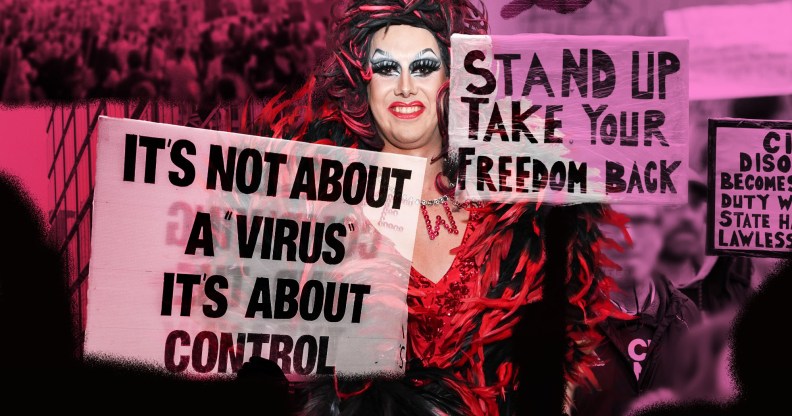
Drag queen Aida H Dee was targeted by a far-right hate campaign. (Getty)
COVID conspiracy theorists and anti-vaxxers have formed a loose coalition with the far-right, targeting drag queens in the UK with abuse and misinformation.
In May 2022, a small Christian anti-vaccine group called Outreach Worldwide sent out a message on Telegram urging members to contact their local libraries. They wanted to put a stop to events where drag queens read books to children in libraries.
Before long, anti-drag and anti-trans hate campaigns had firmly taken hold in COVID-denier circles.
Now, conspiracy theorists and the far-right are becoming frequent sights at anti-LGBTQ+ protests in the UK – a recent demonstration outside an event at London’s Tate Britain was attended by members of the neo-Nazi organisation Patriotic Alternative as well as notorious COVID denier Piers Corbyn.
Patrik Hermansson, a researcher with advocacy group Hope not Hate, says COVID acted as a gateway to conspiracies and disinformation for whole swathes of the population.
“Communities online organised around the idea of COVID not being real, and the thing about conspiracy theories is that once you believe in one you have to find an explanation for why that happened,” he tells PinkNews.
“You need to find a perpetrator, you need to find a bad guy behind the whole thing, so you’re looking for a reason for this betrayal.”
Before long, bad faith actors start bringing in “different wild ideas” to their networks, such as claims LGBTQ+ people are “grooming” children, which were intoxicating to those who already felt disillusioned with society.
“You mistrust authority as a conspiracy theorist, but you have a huge trust to your fellow person who you see as a real individual, who’s not part of the elite,” Hermansson says.
“You quite quickly start trusting them so that’s one of the paradoxes of conspiratorial thinking.”
A Drag Queen Story Hour (DQSH) tour planned for the summer of 2022 quickly became a flashpoint for a newly-expanded and organised far-right.
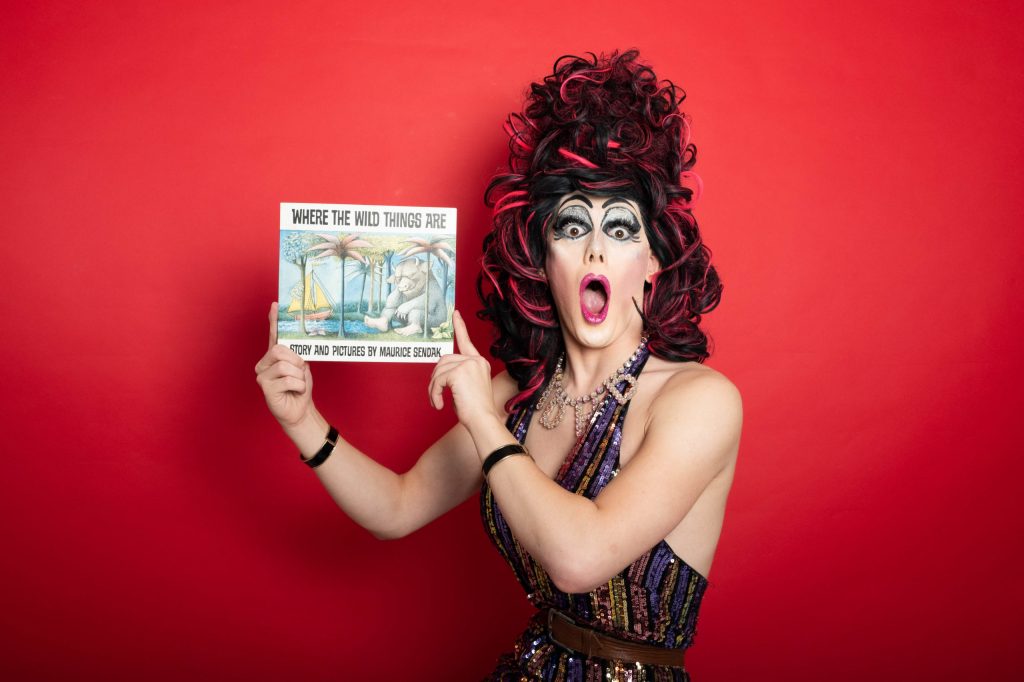
Aida H Dee, founder of Drag Queen Story Hour UK, recalls how the hate escalated gradually, eventually culminating in a vicious campaign from once disparate groups.
“It was during the pandemic that I first had to get police involved with regards to what I do,” the drag queen tells PinkNews.
“I had my first big pile-on on my social media. I woke up one day and I had thousands of comments on just one post calling for me to be put into a wood-chipper, calling for me to be shot. That was the first time that had ever happened online.”
The hate wasn’t always the classic homophobia so many queer people will be familiar with – it was more specific, with many singing from the same hymn sheet. It didn’t come as a surprise to Aida that that happened in a time when people were contending with loneliness and uncertainty.
“I don’t think COVID was wholly to blame, but it definitely was the catalyst to them becoming a organised group for sure.”
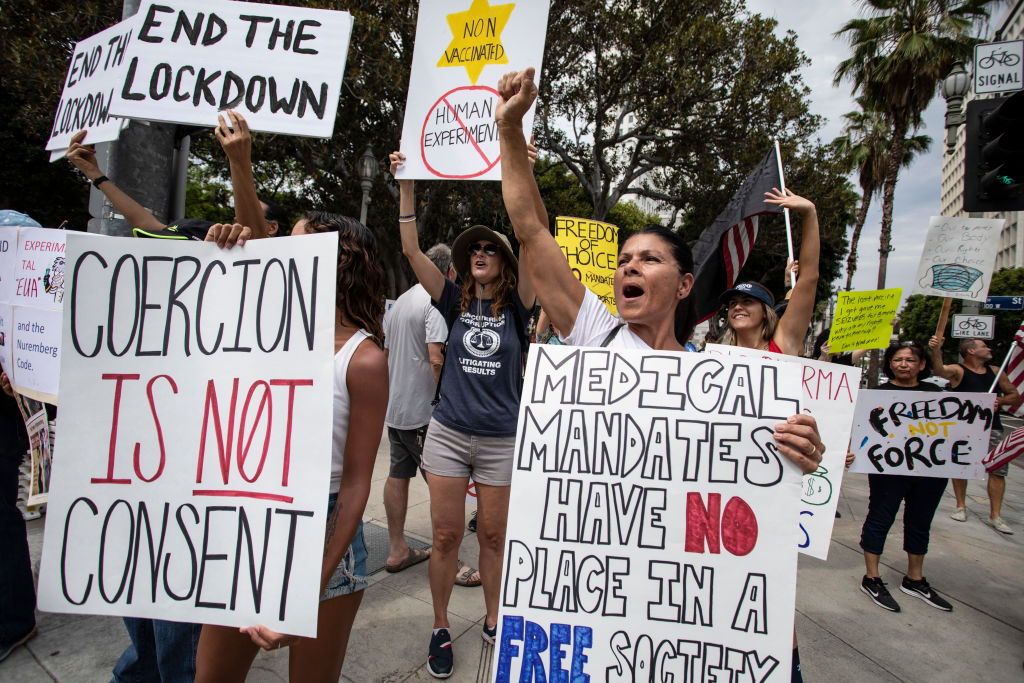
Conspiracy theorists need to ‘find a bad guy’
Social media platforms have provided a space for conspiracy theorists and the far-right to converge – and they have a lot of answering to do, says Imran Ahmed, CEO of the Center for Countering Digital Hate (CCDH).
“The problem with social media isn’t so much that people are able to speculate or discuss, which is great, it’s that the posts that get the most visibility are the ones that get the most engagement, and disinformation tends to get more engagement than information,” Ahmed says.
That was clearly seen in the early days of the pandemic when little was known about the virus that had shut the world down. In the absence of solid, reliable information, people sought out their own theories.
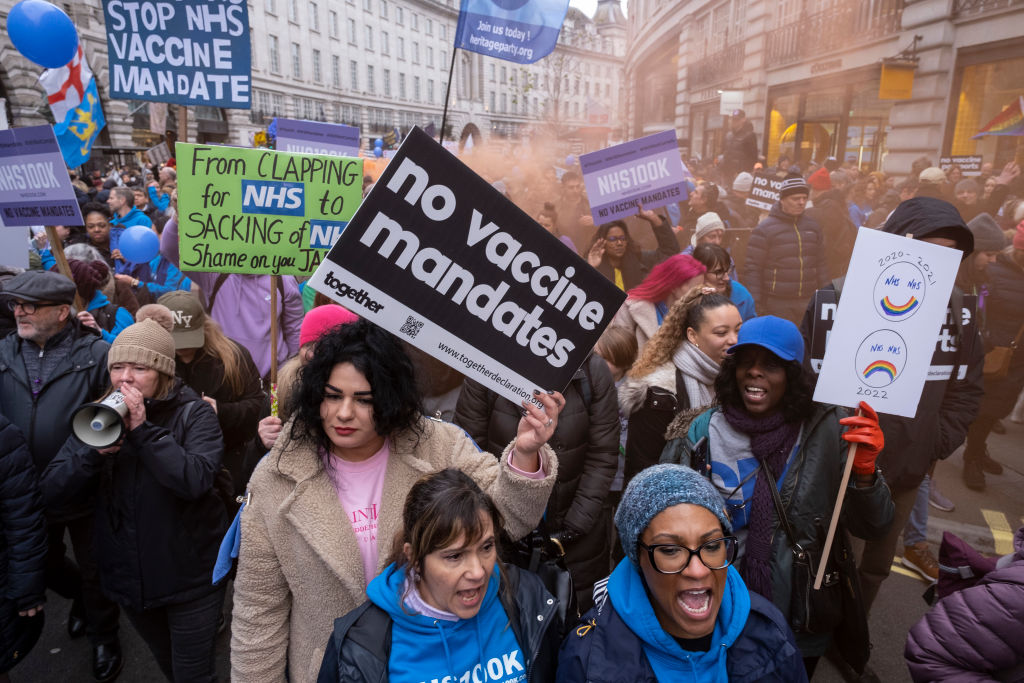
It wasn’t long before the anti-vaxx movement, already a powerful force, weaponised the pandemic for its own ends.
“They had only three themes to their ideas – COVID isn’t dangerous, vaccines are dangerous, don’t trust the people telling you otherwise,” Ahmed explains.
What’s troubling is that, once you’ve been convinced of one conspiracy theory, social media algorithms will happily help you find the next one to jump on. In a 2020 study, the CCDH found that some social media platforms will start showing people anti-LGBTQ+ and QAnon related content after they’ve followed anti-vax pages.
“They’re essentially saying, if someone likes something about COVID I’m pretty sure they’re going to like a video which spouts a conspiracy theory about QAnon or about how ‘LGBTQ+ woke people’ are trying to groom our children,” says Ahmed.
“There is an algorithmic element to the cross-fertilisation of conspiracists. Eventually that cross-fertilisation of conspiracism leads to hybridisation of conspiracy theories.”
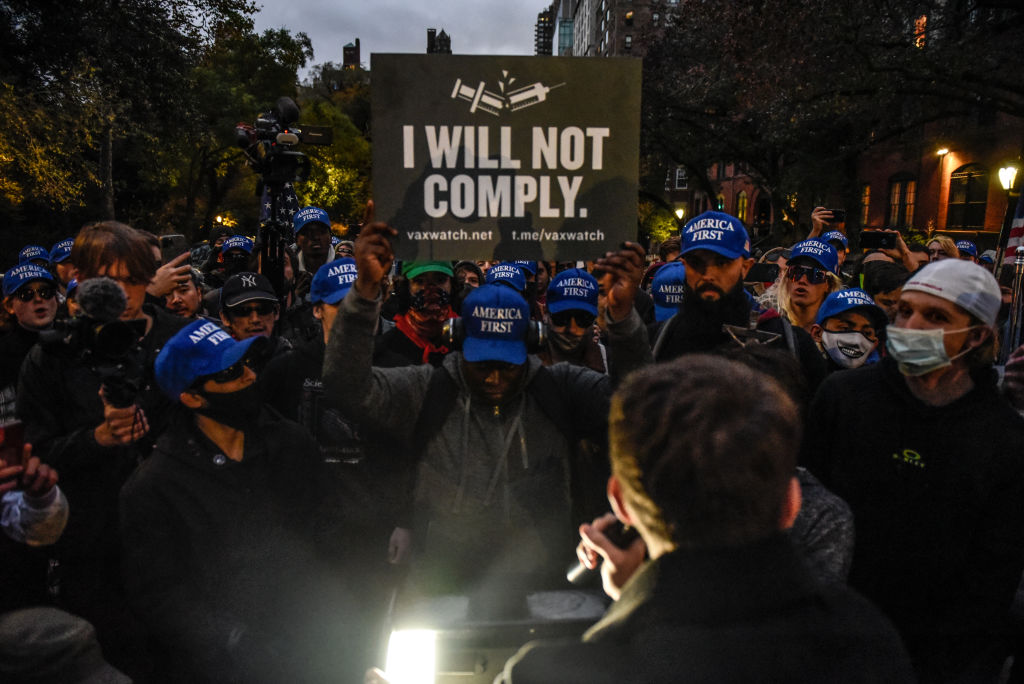
Disinformation and conspiracy theories often originate online, but can have real-world consequences. Ahmed points to the Colorado Springs shooting, in which five people were shot dead by a lone gunman, as an example.
“That a man felt so empowered and felt that he was right to think that gay people were grooming people so therefore they deserved to be killed – that is just a sign of the proliferation of these hateful narrates and these disgusting slurs and conspiracy theories,” Ahmed says.
Social media platforms need to take responsibility for the harm they’re causing by allowing disinformation to proliferate online, Ahmed says.
“There’s a cogent movement to say actually maybe you should share in the costs of the harm that you produce, not just the rest of society, which at the moment bears the burden of these platforms’ immoral decisions to place profits before people.”
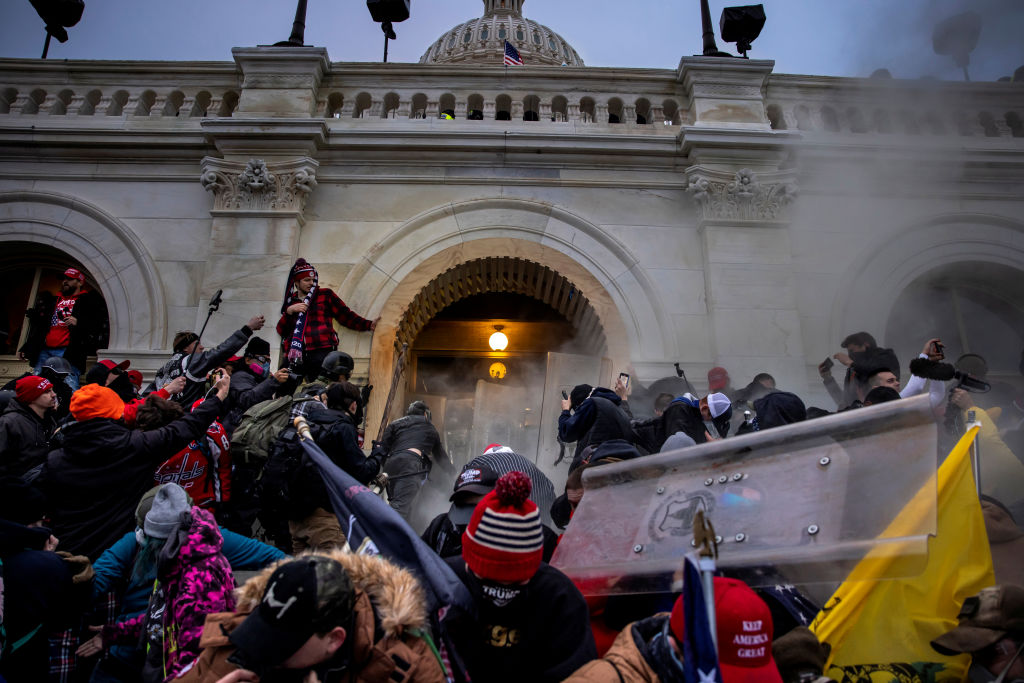
The future is unclear for the far-right and its anti-LGBTQ+ movement – nobody knows if the coalitions formed between disparate groups in the pandemic will last.
For her part, Aida H Dee thinks they’re already starting to splinter.
“When they start talking about each other’s hates in more depth, some of them will realise that they do not align with their points of view and they will suddenly move away from that group, and that’s what I’ve seen happening already,” the drag queen says.
“These factions of people are breaking anyway because they realise some of these people really are twisted.
“To say they’re completely united would, I think, be wrong.”

